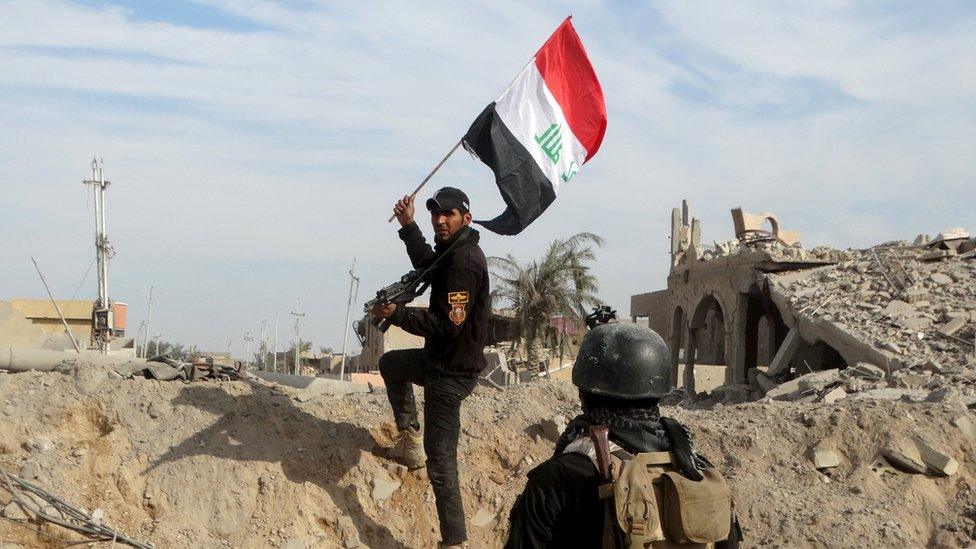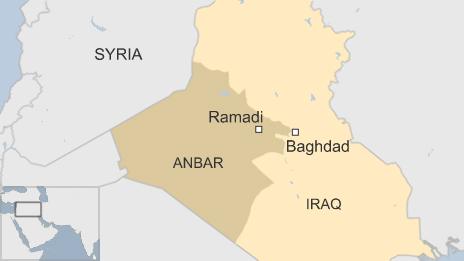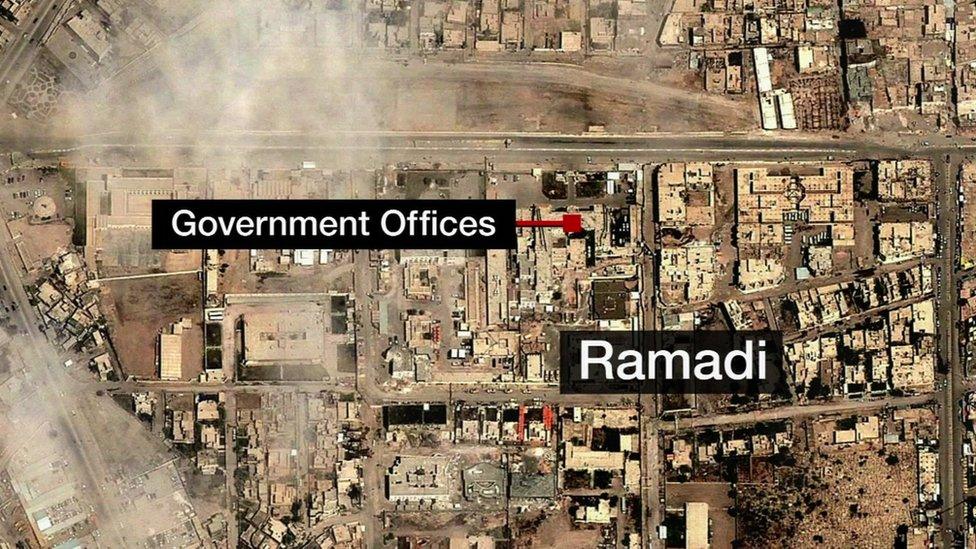Iraq forces in 'full control' of central Ramadi
- Published

The Iraqi flag was raised in parts of Ramadi as security forces entered
Iraqi officials say the army is now in "full control" of central Ramadi, where so-called Islamic State (IS) has been resisting an army offensive.
A former government compound, where IS fighters had been holding out, has been retaken, Iraqi security sources say.
However there were still "pockets of resistance" in parts of the city, the provincial governor's spokesman said.
Ramadi, about 55 miles (90km) west of Baghdad, fell to IS in May, in an embarrassing defeat for the army.
Iraqi government forces, backed by coalition air strikes, has been trying to retake the mainly Sunni Arab city for weeks.
Did tactical switch help advance?
"We believe that we do have full control of the centre of Ramadi," Muhannad Haimour, spokesman for the Anbar governor, told the BBC.
"But we're being very careful in declaring victory until we have an official announcement from the prime minister's office."
Mr Haimour said that would mean that area had been cleared of explosives, adding that officials now believed that IS militants were not "capable of launching any attacks on the security forces".
The spokesman described the remaining pockets of resistance as "very weak".


In recent days, troops have been picking their way through booby-trapped streets and buildings as they pushed towards the city centre, seizing several districts on the way.
Iraqi soldiers moved in to retake the former government compound on Sunday after sniper fire stopped and aerial surveillance detected no human activity.
An Anbar security source told the BBC on Monday that Iraqi forces had taken over the complex completely, finding "nothing but rubble and earth mounds, as most of its buildings were blown up" by IS.
The source said it might still be a few days before "full liberation" of the city is declared.

Analysis: Thomas Fessy, BBC News, Baghdad
Controlling this compound is key to retaking Ramadi. Iraqi soldiers are slowly clearing it as they fear it may have been rigged to explode.
Troops are also busy in the surrounding neighbourhood, where pockets of resistance remain.
The authorities will hail this week's offensive as a success - in stark contrast with the security forces' hasty retreat from Ramadi last May.
However, it took months to mount this ground campaign, in co-ordination with coalition air strikes.

There had been no clear indications of the number of IS militants who had been defending the city, although some reports put it at about 400. No official toll of Iraqi army casualties has been given.
The Iraqi military believes the remaining militants have headed north-east. Fighting is also reported south-west of the compound.
Concern remains for hundreds of families trapped on the frontline. Although the situation on the ground remains unclear, AFP news agency reported celebrations on the streets of a number of Iraqi cities.
The operation to recapture Ramadi began in early November, but made slow progress, mainly because the government chose not to use the powerful Shia-dominated paramilitary force that helped it regain the northern city of Tikrit, to avoid increasing sectarian tensions.